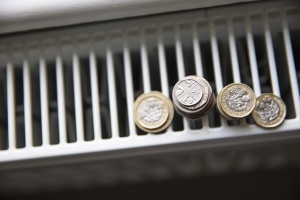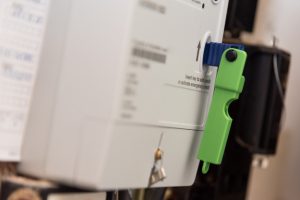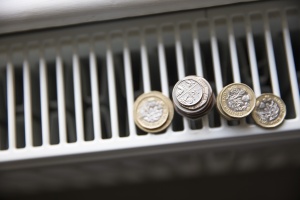National Energy Action (NEA) Media release
EMBARGOED UNTIL 29 June 00:01 AM
Contact: Mike Potter, Communications and Campaigns Officer at NEA
Mobile: 07595410756 or email: michael.potter@nea.org.uk to arrange further comment or interview with report authors.
Vulnerable ‘pay as you go’ energy customers put at ‘needless’ risk during pandemic
A new report released today [Tuesday 29th June] highlights that more than 2 million ‘pay as you go’ customers with older ‘legacy’ energy meters were put at needless risk during the pandemic. Charities say difficulties keeping lights on and families warm could have been avoided with rollout of new smart meters for pre-payment customers. They make new calls for UK Government, Regulator, and industry to intervene and prioritise smart meters for pay as you go customers, so they do not lose out on £5 billion of household benefits from the smart rollout.
The new report “Maximising the smart meter roll-out for pre-payment customers” captures insights and views from over 130 organisations across the UK who work with low income and vulnerable energy consumers, alongside interviews with key industry and government stakeholders and vulnerable ‘pay as you go’ customers themselves.
Report author and Head of Policy at National Energy Action (NEA), Matthew Copeland, comments:
“Our findings are stark. There is clear evidence vulnerable energy customers with older ‘pay as you go’ meters were put at needless risk during pandemic. These customers have faced a torrid time during the last 18 months. During successive lockdowns they have faced extra difficulty, needing to leave the safety of their homes to top up, just to keep their lights on and their families warm. This danger and extra difficulty could have been prevented with the rollout of new smart meters for these customers”.
As well as identifying significant barriers to maximising the rollout for prepayment users, the report calculates there is the potential to create more than £5bn in benefits for households, and more than £1bn for energy suppliers, from the smart meter rollout for pay as you go customers. The report makes 6 key recommendations to the UK Government, Ofgem and industry to overcome barriers and maximise the potential of the rollout.
Frazer Scott, Chief Executive of Energy Action Scotland (EAS) and co-author of the report continues:
“The benefits of smart metering for pay as you go customers could be significant; more than £5bn in benefits for households has the potential to make huge impact on struggling households. As well as targeted steps to boost awareness of the technology and incentivise its uptake, National Energy Action and Energy Action Scotland want to see the UK Government and Ofgem introduce specific targets for replacing legacy prepayment meters. Replacing the millions of outdated prepayment meters will clearly take time and those with old technology must be protected from higher prices in the meantime. Prepayment customers must remain our priority and prices for prepayment users must remain capped, until all prepayment households have received a smart meter”.
Robert Cheesewright, Director of Communications at Smart Energy GB added:
“Getting smart prepayment meters can be life changing for households. We must make sure low-income, vulnerable and prepay customers benefit from smart meters and the rollout. We welcome NEA and EAS’s proposals on how this can be achieved and want to work with them, the UK Government, Regulator, and industry to ensure everyone who prepays for their energy benefits from smart meters”.
The report will be available from 00:01 am 29th June 2021 at https://www.nea.org.uk/what-we-do/resources-publications/. For advance copies or for additional comment or information please contact matt.copeland@nea.org.uk or call 07921451646.
Notes to Editors
- NEA works across England, Wales and Northern Ireland to ensure that everyone in the UK can afford to live in a warm, dry home. To achieve this, it aims to improve access to energy and debt advice, provide training, support energy efficiency policies, local projects and co-ordinate other related services which can help change lives.
- Energy Action Scotland (EAS) is Scotland’s national fuel poverty charity. EAS works with policy makers and cross sectoral partners to develop and promote effective solutions to the problem of cold, damp and expensive to heat homes.
- Smart Energy GB is the not-for-profit, government-backed campaign helping everyone in Britain to understand the importance of smart meters and their benefits to people and the environment. Our national campaign is reaching homes and microbusinesses across England, Scotland and Wales. For more information visit smartenergyGB.org.
- About smart meters and the rollout – Smart meters are the next generation of digital gas and electricity meters, providing automatic meter readings and near-real time energy use information for households. Smart meters and the information they provide can help Britain to achieve net zero by allowing for better management of energy demand and supply, providing people with the visibility needed to reduce their usage, and making the best and most efficient use of wind and solar power. Innovative technology and services enabled by smart metering is pivotal in allowing our country to decarbonise and have more electric vehicles. Smart meters are available from energy suppliers at no extra cost, and the accompanying in-home display shows energy use in pounds and pence. 24.2 million smart meters have already been installed across Britain.
- About Prepayment Meters – Many households use prepayment meters for gas and/or electricity – according to Ofgem, there are 4.4m electricity prepayment meters across Great Britain, and 3.4m gas prepayment meters. There are disproportionately more prepayment meters in use in each of Wales and Scotland when compared to England. Use of prepayment meters has a relatively high corelation to living in fuel poverty. In England, 29% of electricity prepayment users are fuel poor and in Scotland 36% of prepayment users are fuel poor. There is no available data for Wales.
- The report drew on insight and views from a call for evidence with 132 unique organisations across the energy industry that are on the frontline of addressing fuel poverty, and interviews with 12 key stakeholders and households that use prepayment meters.
- According to BEIS, there are 22.2 million smart meters, and 14% of these are in smart prepayment mode, implying that there are 3.1m smart prepayment meters in operation. https://assets.publishing.service.gov.uk/government/uploads/system/uploads/attachment_data/file/968356/Q4_2020_Smart_Meters_Statistics_Reportv2.pdf Additionally, Ofgem say that there 7.8m prepayment meters in the GB energy market. https://www.ofgem.gov.uk/system/files/docs/2019/09/vulnerable_consumers_in_the_energy_market_2019_final.pdf This implies that there are 4.7m legacy prepayment meters left to upgrade. Conservatively assuming that these are all households who use both gas and electricity, this equates to more than 2m households using legacy prepayment meters.
- Our report finds that there were 16 significant benefits of upgrading prepayment energy meters to smart meters, totalling more than £6bn in monetary terms.
| Household benefits | Supplier Benefits | Landlord Benefits | Macro benefits |
| The ability to change payment type | Reduced costs to serve customers | Reduced frequency of disputes Landlord and tenant | Reduced energy waste
|
| New, innovative tariffs (e.g. ToU) | Enhanced debt repayment processes | Reduced Energy Infrastructure Costs | |
| Enhanced information to aide budgeting | Better management of costs for when households cannot physically top up | Enhanced roll out of energy-related technology | |
| Better vending options | Enhanced consumer engagement | Greater renewable generation utilisation | |
| The Choice of Energy Tariff | Increased financial resilience | Reduced social stigma for prepayment users |
- This same engagement uncovered 9 significant barriers to increasing the uptake of Smart meters for prepayment households:
-
- The lack of tariffs aimed at the smart prepayment market that reflect the lower cost to serve.
- Customer inertia
- Poor perceptions of energy suppliers
- Hassle/disruption for households
- Commercial decisions from suppliers to hold back offering prepayment upgrades
- Poor awareness of the benefits of smart meters and In Home Displays (IHDs)
- A lack of specific targets for suppliers to replace prepayment meters
- Poor customer experiences of the rollout to date
- Semi-concealed meters that can be hard for installers to access.
- The report makes the following key recommendations to improve policy and regulation, provide incentives to customers, improve customer awareness and accessibility of smart meters. The authors also call for prices for prepayment users to remain capped, until all prepayment households have received a smart meter.
















